Should I Leave My Boiler On Continuously?
“So what’s the truth, then?”
Our friendly boiler serviceman was a bit shocked.
But if anyone should know, he should.
So I continued…
“Haha. Don’t worry. I’m just curious about whether to leave our boiler on continually… or only put it on when we need it.”
“Ah…” he said, quite relieved that it was a question he could address.
“Let me tell you my own experience.”
Hmm.. nothing like personal experience. So I listened carefully.
“I actually tested this at home,” he said.
“In the winter, during the day we set the thermostat at 21 degrees.
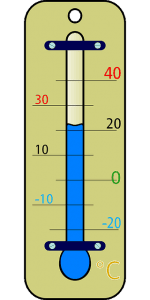
“And when we go to bed, we set it to 15 degrees.”
He must have detected the curious look on my face, so he continued:
“That’s because, when the boiler’s up to temperature, it uses hardly any gas to maintain that temperature…
“And raising the temperature from a room that’s at 15-degrees back up to 21-degrees uses less gas than it would to heat it up from a stone-cold house.”
I still had that sceptical look. So he carried on…
“I tested it. It actually used less gas.”
You can’t argue with that, can you?
So as he left, I thanked him, gave him a tip (well, he did a good job on the boiler too, and he took the time to explain things as he serviced it), and then I went to make some notes for this blog.
But I was still sceptical.
I needed more proof.
Once an inquisitive engineer, always an inquisitive engineer…
Or just plain stubborn?

What Do The Experts Say About Heating?
A simple Google search took me to Uswitch, who threw a spanner into the works.
“Err, it’s a bit more complex than that,” said Uswitch (well not exactly like that because it wasn’t an actual conversation – but you know what I mean)…
Some heat loss will always occur due to the difference between the temperature outside your house and the temperature you are trying to maintain on the inside. The greater the heat loss from your home, the more energy you will need to maintain the inside temperature, which means that the cost of leaving your heating on all the time will be especially expensive.
So, in other words, if the house leaks heat (because it’s not well insulated) it could work out more expensive to leave the heating on continually.
Uswitch recommends cavity-wall insulation and adequate loft insulation to get around that problem.

But overall, they don’t subscribe to the idea of leaving the boiler on continually.
Typically the most energy-efficient approach to heating your home is to programme your heating system so that it comes on when you need it most.
How to Decide Whether to Leave Your Boiler on Constantly – or on a Timer
Their acid test is this:
Provided you have a well-insulated home…
Take meter readings at the beginning and end of the week, and leave the boiler on constantly for a week.

Then repeat the experiment using the timing-of-the boiler method.
And see which uses the least amount of gas.
One other thing I might add…
When your boiler is on continually, the electric pump will be running for more time.
So remember to take that into consideration.
The Money Saving Expert View
OK. So Uswitch sat on the fence a bit with that one.
So let’s see what Money Saving Expert reckons.
MSE asked the experts at the Energy Saving Trust:
They too tell us that heat is continually leaking from your house – and the amount of leakage depends on how good your insulation is.
So, according to the Energy Saving Trust, a timer is best, to help you heat up your home only when you need it.
But then MSE goes on to balance this with a view from other experts who say:
Every time the heating is turned off, condensation collects within the walls. This condensation can help conduct heat outside the home, they say – meaning you leak heat more quickly and so will use more energy as a result.

The Final Expert View on Heating
Let’s give the final word to the Centre For Sustainable Energy
With an impressive title like that, they should know what they’re talking about when it comes to saving money on energy costs.
No fluff here. Straight to the point.
Take it away CSE:
If you are out during the day (or tucked up in bed at night), you don’t need the heating on. Even if you turn your thermostat down a bit, your boiler will keep firing up and using energy (and cost you money) at times when you won’t feel the benefit. Instead, programme your central heating using the timer so that it switches off when you’re out or in bed, and switches back on to warm up the house about half an hour before you get home or before you get up.

My Summary
So take from that what you like.
Here’s a summary of it:
- The heating engineer leaves his boiler on continually.
- Many experts say it’s cheaper to put the heating on only when you need it.
- Nearly everyone agrees that it’s important to insulate your house well in order to avoid heat loss.
- The acid test is to try each method for a week and see which works out cheaper (assuming, of course, that both weeks have similar outdoor temperatures to give it a fair comparison).
The balance of the arguments seems to favour the “switch on your heating when you need it” option.
But you’ll only know for sure by testing it out yourself.
“I Don’t Agree!”
As you might expect, this blog post caused quite a discussion on Social Media.
So I’ve added this extra section to look at some people’s own experiences… and what I discovered when I tested it out.
Her customers’ own experience made Christina disagree on Facebook…

And Kevin’s wife disagreed, too…

My Central Heating Test
So I tested it.
I ran the heating over 3 days, for…
- 2.5 hours
- 6 hours
- 12 hours
On each test, we heated the house from 12 degrees up to 20 degrees, and maintained it automatically at 20 degrees via the room thermostat.
This is how much the gas cost us…
So it appears, after all, that it is indeed cheaper (per hour) to run the heating for 12 hours straight, rather than a couple of hours here and there.
Now I haven’t included the cost of electricity – because we had some electrical items running during some tests but not during other tests. This is purely gas costs. So there’ll be a small additional cost to run the pump. Also, I haven’t included the standing charge – because you’d still have to pay the 11p or so, even if you shivered all winter!
Interesting, eh?
The data certainly shows how much cheaper it is to maintain a warm house than heat it from stone cold.
Kevin, sorry mate, I think your wife was right after all.
Note: Besides these three tests, I made another two – over 15 hours and 16 hours. But the initial room temperatures were different (one was higher; the other, I suspect, was much lower), so the results were skewed. But if you’re interested, 15 hours was 15p/h, and 16 hours was 20p/h.
Efficient Boiler
Our boiler is only a few years old. So it’s nice and efficient.
But an older boiler might cost a bit more to run.
Just something to bear in mind.
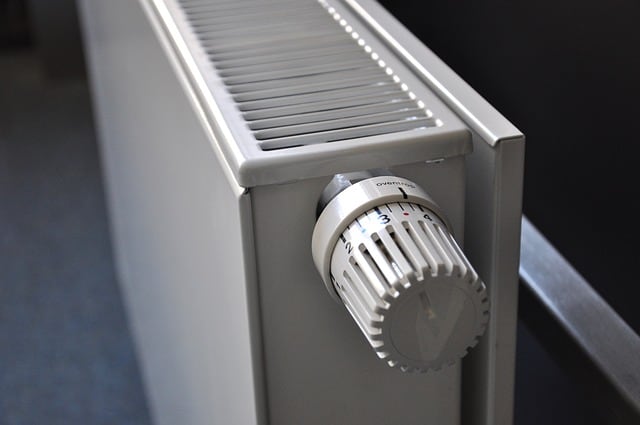
Save More Money With the Right Energy Tariff
Something else which could increase your heating cost is paying more for your gas than you need to.
So make sure you’re on the best energy tariff.
We thought they were all the same until we checked them out, swapped to a new provider, and saw our bills decrease dramatically.
So, as the saying goes, compare the market.
Cashback
And don’t forget to go via a Cashback site to get some money back if you do change your energy provider.
Quidco and TopCashBack are two popular ones in the UK (these are my refer-a-friend links so they’ll send me a small commission if you join via my link).
As I write, Uswitch is offering up to £30 cashback on Quidco.
And Npower is offering £100 cashback on Topcashback.
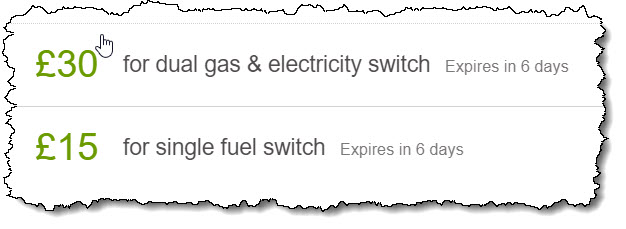

Is it cheaper to run your central heating boiler continually, or only when you need it? Here's what the experts say... and the reality. Share on X
Over to You
What about you?
After all, that’s what matters in the real world. How does it work for you? What’s your experience?
Share your thoughts. Write something in the comments box below. And let’s keep the conversation going.


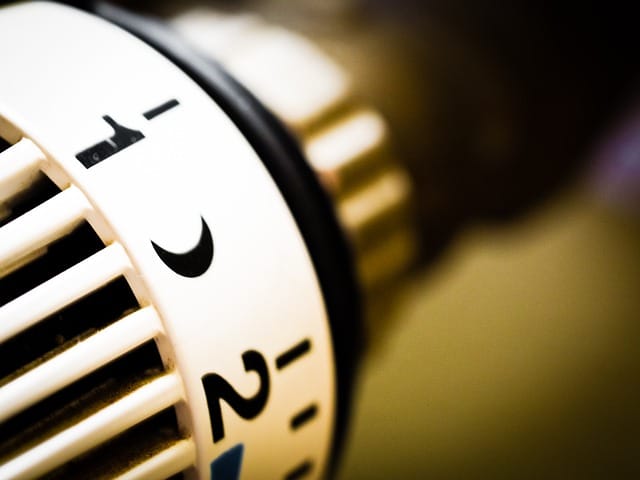
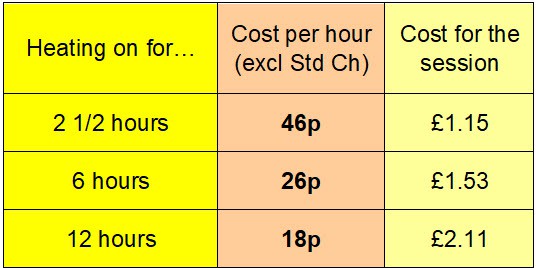


From my experience one has to start with insulating the home properly otherwise any heating approach will simply waste too much energy.. This needs to include as many measures as possible e.g. cavity wall insulation, maximum loft insulation, A+ rated double glazing and doors etc. Then invest in a decent heating control system that is not as crude as ‘on all the time’ or ‘timed’. I use a Tado system and it has definitely saved me money! I have weekly gas and electricity readings going back over 10 years and can correlate improvements with cost savings.
The Tado works on the basis of maitaining temperature to set levels rather then simply on/off. This means that the temperature doesn’t fluctuate wildly which correlates well with the boiler man’s advice. Conversely if I am out of the house the boiler automatically switches off to save energy and switches back on to achieve a set temperature before I get home. Use of a simple time switch is far too coarse and hence wastes too much energy.
The Tado is one of the best investments I have made because it saves money and keeps the house at the temperature I want. Win/win!
That’s fantastic. Very useful. Thanks, Peter.
I’m going to check out Hive – so I’ll check out Tado too.
Hi David.
I have installed a Honeywell system.
This allows me to programme when the heating comes on in each room separately.
I have the minimum temperature for each room set at 15C, just like your engineer. I found this was better than allowing them to cool to the default of 5C and then working really hard to get back up to temperature.
We use the different rooms in the house in a predictable way at different times of the day so we set up the controls so that the room we are going to be using gets to temperature at the time we want to use it.
For example, I spend the daytime in the office so that is set at 21C from 6am until 9pm. The kitchen heats up at 5pm and goes off at 8pm. The living room heats up at 8:30pm and cools down again at 11pm and so on for each room.
The system learns how long it takes to warm the room to the programmed temperature and starts supplying heat so that it is up to temperature by the programmed time. It also knows how long it takes to cool and turns the heating off a while before.
There are also overrides that allow more control when you want it, for example if I am going out I just tell it to shut down or reduce the whole house by 3 degrees for a set time.
It’s controllable by iphone app and over the web so if we are coming home early we can turn the heating on when leaving the airport.
It really is a great system that allows you to heat only the parts of the house you are using.
Thanks Iain
The Honeywell system looks like a great idea.
Being able to time the heating in individual rooms sounds very efficient.
Is it the Evohome system?
Good article – already reading up. Gas engineer here in Tewkesbury – My Home Heating. https://myhomeheating.co.uk